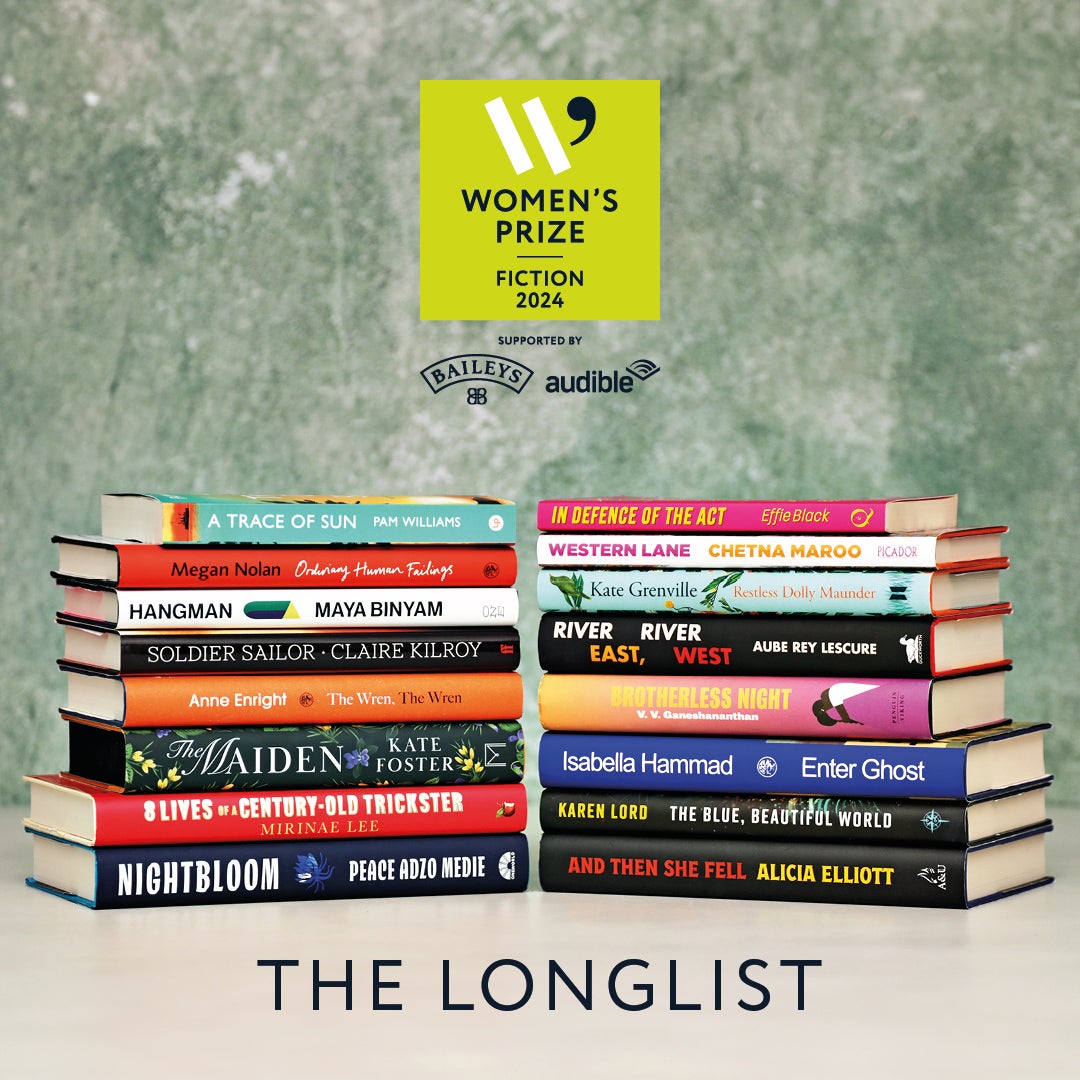Monica Ali says Women’s Prize for Fiction longlist ‘gives voice to the voiceless’
Exclusive: Several of the books deal with the ‘emotional impact of immigration’
Your support helps us to tell the story
From reproductive rights to climate change to Big Tech, The Independent is on the ground when the story is developing. Whether it's investigating the financials of Elon Musk's pro-Trump PAC or producing our latest documentary, 'The A Word', which shines a light on the American women fighting for reproductive rights, we know how important it is to parse out the facts from the messaging.
At such a critical moment in US history, we need reporters on the ground. Your donation allows us to keep sending journalists to speak to both sides of the story.
The Independent is trusted by Americans across the entire political spectrum. And unlike many other quality news outlets, we choose not to lock Americans out of our reporting and analysis with paywalls. We believe quality journalism should be available to everyone, paid for by those who can afford it.
Your support makes all the difference.The author Monica Ali has said that this year’s Women’s Prize for Fiction longlist gives a voice to those who would “otherwise remain voiceless”.
The writer, best known for her novel Brick Lane, is chair of the judges for the prize which celebrates original fiction written in English by women from anywhere in the world.
It features work by eight debut novelists and seven independent publishers on several stories that deal with the “emotional impact of immigration” and “the narratives we create for ourselves when we feel we don’t belong”, according to the Women’s Prize Trust.
Other themes explored by the 16 books include trauma, madness and resilience, individual and societal grief in war, the relationship between art and politics, what it means to be a queer member of a family, and motherhood and autonomy.
In an interview with The Independent, Ali, 56, spoke about the longlist while teaching a creative writing class in Marrakesh.
With several books featuring writers of colour delving deep into their experiences of immigration and diasporic identity, Ali, who is of Bangladeshi heritage, said they were among the most important issues of our time.
“It’s not surprising that themes of immigration and migration have cropped up in the longlist because that’s reflective of the reading that we did. Those issues are some of the most pressing and debated of our time.”
She discussed the power of fiction to “deep dive” into complex issues that would ordinarily be simplified.
“When you deal in politician soundbites and statistics, what gets lost is the human experience, the complexity of those experiences.

“That’s what fiction can do so brilliantly is to illuminate those individuals to give voice to people who otherwise remain largely voiceless.”
The list includes previous Women’s Prize for Fiction winner Kate Grenville for her work Restless Dolly Maunder, published by independent publisher Canongate Books.
The story follows a pioneering and triumphant woman as she creates a life she can call her own – a husband and two children don’t deter her from searching for love and independence. Grenville won the prize in 2001 for her novel The Idea of Perfection.
It also includes Enter Ghost by Isabella Hammad, a tale of a Palestinian woman who returns to the West Bank and is involved in a stage production of Shakespeare’s Hamlet. Ali describes it as “a deeply nuanced, very subtle novel... that could have been topical at any time during the last several decades”.

Among the debut authors included are Maya Binyam who is included for her work Hangman, which explores a man’s return to his home in sub-Saharan Africa after 26 years living in exile in America.
Ali says it is “a very diverse list” and sheds light on the power of fiction to humanise marginalised groups.
“It humanises the individuals involved, it reminds us that they are individuals, that they are people.
“It’s fascinating to see the very different ways that women writers are engaged with that [theme of migration] from novels of return, for example Hangman and Enter Ghost, to the immigrant experience in the US coming from Ghana in Nightbloom. Then there’s a reversal of the immigrant story in River East, River West with an American women in China, there’s all different ways of approaching it.”
Run by The Women’s Prize Trust, a UK charity which creates equitable opportunities for women in the world of books, it is sponsored by Audible and Baileys and is now in its 29th year.
The shortlist of six books will be announced on Wednesday 24 April at 8am.
The full longlist is included below
Hangman – Maya Binyam
In Defence of the Act – Effie Black
And Then She Fell – Alicia Elliott
The Wren, The Wren – Anne Enright
The Maiden – Kate Foster
Brotherless Night – V V Ganeshananthan
Restless Dolly Maunder – Kate Grenville
Enter Ghost – Isabella Hammad
Soldier Sailor – Claire Kilroy
8 Lives of a Century Old Trickster – Mirinae Lee
The Blue, Beautiful World – Karen Lord
Western Lane – Chetna Maroo
Nightbloom – Peace Adzo Medie
Ordinary Human Failings – Megan Nolan
River East, River West – Aube Rey Lescure
A Trace of Sun – Pam Williams

Join our commenting forum
Join thought-provoking conversations, follow other Independent readers and see their replies
Comments